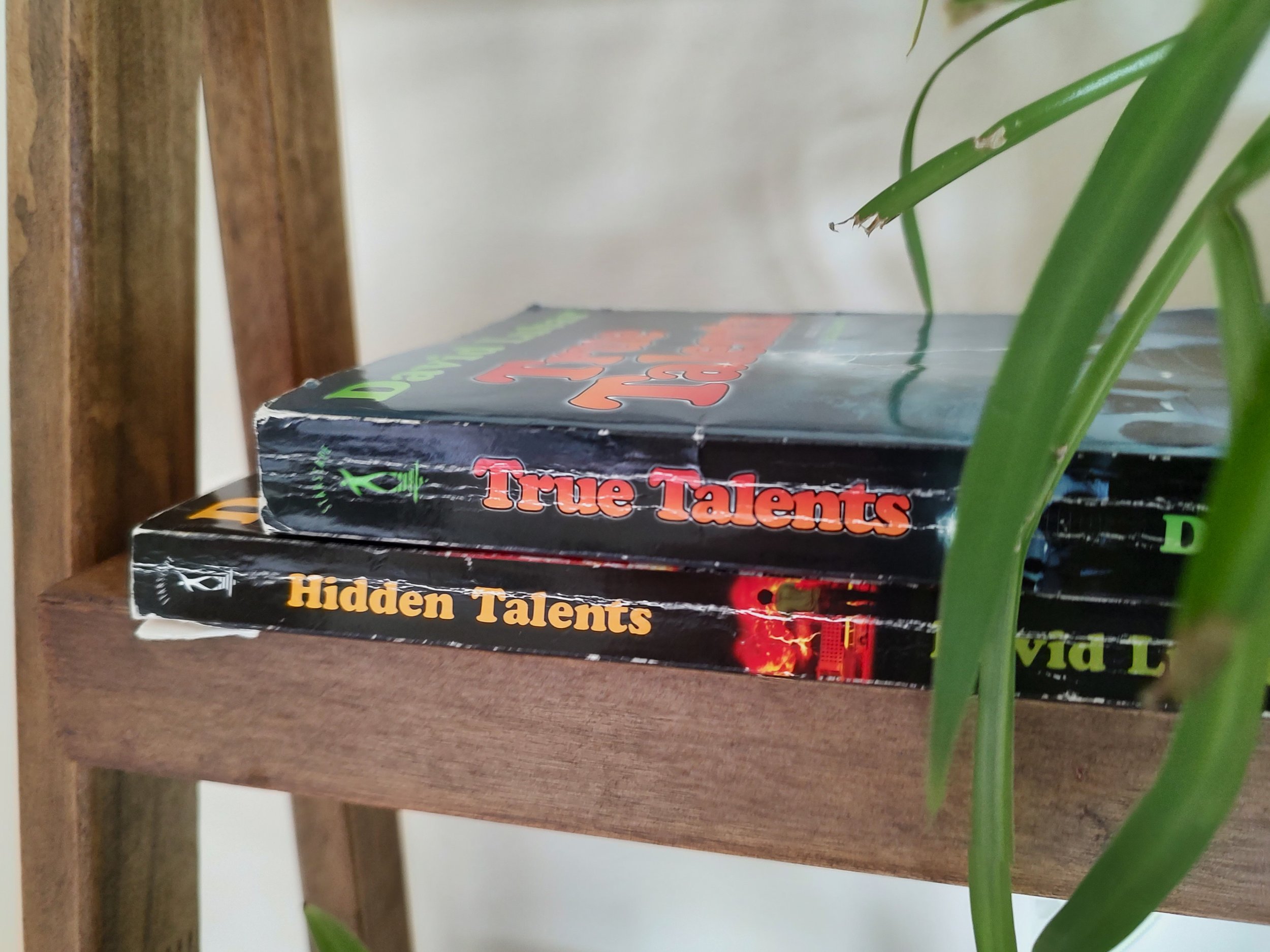The Latter
Well Read Copies of True Talents and Hidden Talents by David Lubar
This post was originally published August 10, 2023.
Some misunderstandings turn into life-changing lessons. One such misunderstanding occurred when I was in middle school, reading my latest purchase from the Scholastic Book Fair.
Growing up, my concept of comedy was scripted. The kind of jokes that have the setup and the punchline. The kind of jokes you find in Coffee News, printed on popsicle sticks, or starting with “knock knock.” I never felt like a funny person, which was fine, it wasn’t my brand. At 10 years old, I had no intentions of being a stand up comic and I still don’t, but I did have intentions of being a writer and well… What if one of my characters was supposed to be funny?
I found the book True Talents by David Lubar, and it had all the things I love in a story: a group of friends, a dash of the paranormal, and funny characters. Now, one of these characters was meant to be a comedian with the setups and punchlines. Some of the jokes were written out, and having just reread this book for this post, I can’t remember any of them. That character wasn’t the character who was funniest to me. Those lines weren’t the ones that I remembered almost two decades later.
One character named Dennis is a walking encyclopedia. He’s very smart and has very little social awareness. Early in the book he gets himself into a sticky situation where he gets beaten up, and he’s quite embarrassed by it. He’s a guy who wants to look cool, and instead, he looks like someone who got his butt handed to him. There’s a scene late in the book that goes like this:
“Oh, no! Dennis, what happened to you?”
“I fell.”
“Repeatedly?” she asked. “Or in with the wrong crowd?”
“The latter.”
I remember laughing out loud at this scene, and you may be thinking… why? It’s not funny, and you would be correct. But I read it wrong. You see, at the age I was reading this, I did not know what the word “latter” meant, and I thought it said this:
“Oh, no! Dennis, what happened to you?”
“I fell.”
“Repeatedly?” she asked. “Or in with the wrong crowd?”
“The ladder.”
I thought Dennis was committing to the lie and doubling down by insinuating that he fell, bouncing off the rings of a very tall ladder. It was a stretch that carried no believability whatsoever, and yet, here he was saying it. And thus I had my epiphany.
The idea of Dennis saying “ladder” instead of “latter” wasn’t what was funny, it was his behavioral patterns. I had immediate buyin that my misinterpretation of the scene was correct because it was something the character might actually say. Dennis’ character had me laughing multiple times throughout the book because his responses to things were often unique. He’d share a trivia fact that people never asked for, mention a reference to something tangentially related, and was described by one of the characters as book smart but also the kind of person who would cross a street without looking both ways. It wasn’t just the things that he said that were funny, it was that his lack of self awareness set him up to create funny moments.
Once this concept clicked with me, I started to see it everywhere. When watching comedians perform, their best bits were anecdotes of people responding to a situation in a way that evidenced their quirks, perspectives, and behavioral patterns. Other forms of media do this all the time as well. Some immediate examples I think of are John Mulaney’s “Street Smarts” bit and the “No soup for you” bit from Seinfeld, which worked so well because the character who yelled it was set up earlier in the episode to be impatient and serious about their business.
I paid no more mind to the popsicle sticks and Dad joke books. Comedy, I realized, is in characterization. It’s not about a line that can be cut and pasted into anyone’s dialogue or story, it’s a believable reaction from a character who was designed to make it.
